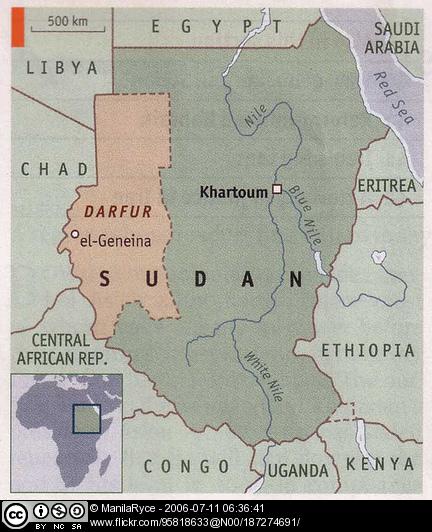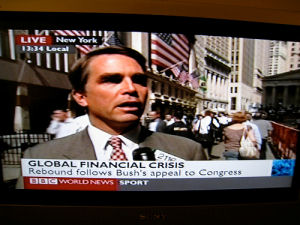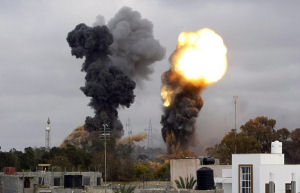Social Media: No serious news-gathering operation can afford to ignore it
In the wake of the scandal currently afflicting Britain’s news industry, it is tempting to believe that anything might be better than putting our faith in the ethics and trustworthiness of professional journalists. So it is a good time to review what social media means for a news industry that is, to put it kindly, in a state of flux. As Tom Standage’s special report makes clear, social media and bloggers can contribute far more to news than was once thought. In recent years mainstream news organisations have often relied on them to break stories that professionals either couldn’t get to or didn’t know about, or to expose weaknesses or failures of interpretation amongst those same professionals. So there is …

News Media: Outside America, the future is much brighter
In the US debate over news there is an assumption among many that the Internet is killing news organisations. People point to the worrying figures about the numbers of journalists that have been laid off (with net newsroom employment down by more than 10,000 since 2007), the difficulties facing city and state newspapers, and to the dramatic decline of ad revenues. There’s no denying that these developments are worrying. But focussing on the US picture only tells a very partial part of the story about the relation between the news industry and the internet. The recent book that we produced at the Reuters Institute on The Changing Business of Journalism and its Implications for Democracy reveals that the US newspaper …

China and India in Sudan: an Uncertain Relationship
On June 21, at the Manor Road Building, Oxford University, Daniel Large and Luke Patey discussed the role of China and India in Sudan’s oil sector. This industry is of particular interest today, as on the 9th of July the country will split into Northern Sudan and Southern Sudan. The recent border clashes illustrate the lack of agreement between the two sides about the sharing of oil revenues. The two speakers situate this issue within an international context by contrasting the involvement of China and India and discussing the long-term prospects of Sudan’s oil industry, among other interesting questions. China’s involvement in Africa has become a hot topic in media and political discussions. This has concealed that of other Asian …
Effective governance
The credit crunch and the disillusion with parliamentary democracy prove that there is a problem with the way we govern ourselves, as organisations and states. I would like to propose a solution which, if implemented, would go a long way to providing effective governance, economic growth, and social stability. THE PROBLEM All our existing institutions and regulations failed to prevent the credit crunch, the Madoff and Stanford frauds, the obvious risk of bankers lending to people who can’t afford to repay, and the collapse of numerous financial organisations. The banking crisis was caused by banks knowingly lending to people who couldn’t repay; therefore the crisis was predictable. So why did they do it? Because current governance processes don’t work. In …

Why is it so Hard to Reduce Net Migration to the UK?
David Cameron took office having pledged during his campaign to reduce net migration to the “tens of thousands rather than hundreds of thousands,” a commitment that has been reiterated numerous times since then by Cameron and other Conservative ministers (although it is technically a Conservative party goal rather than a coalition government policy). But reducing migration appears much easier said than done. The coalition government has put forward policies designed to reduce net migration through limitations on international students and skilled labour migrants. It has opened a consultation on policy toward settlement—the granting of indefinite leave to remain in the UK, as opposed to mere temporary resident status—and it plans to address marriage- or family-related migration soon. My colleagues at …

Nation States, Capitalism and the Crisis
Numerous questions pose themselves for political economists about the crisis – enough (never waste a good crisis) to keep PhDs engaged for a generation. But in my view there are two big picture questions which modern comparative political economy needs to answer. One is why the epicentre of the crisis was in Wall Street and the City of London. The other is this: the crisis occurred as a result of failures in the main regulatory frameworks – the financial and the macroeconomic – which govern much of the workings of advanced economies. Why, in sharp contrast to the 1930s, have these frameworks changed little since the crisis? These questions raise major issues for our understanding of modern capitalism and its …

Which Entity is the Government of Libya and Why does it Matter?
In the past couple of days, Germany and Canada have joined the group of countries that have declared that they consider the National Transitional Council (NTC) in to be the “legitimate representative” of the Libyan people. But what exactly does this mean? According to the BBC, the group of countries extending this recognition includes France, the UK, Italy, Spain, Germany, the UAE, Qatar, Jordan, Gambia, Senegal and Australia. Russia and the United States have had meetings with the NTC and have also made similar declarations about the illegitimacy of the Gaddafi regime and about the legitimacy of the NTC (see previous post by Stefan Talmon on the US position in March). What are the legal implications, if any, of these …

Dr Marwa Daoudy Discusses the Syrian Uprising
On May 31 2011 Dr Daoudy shared her thoughts about the events in Syria with St. Antony’s students and faculty over a lunch seminar organised by Warden MacMillan. Ever since it started at the end of January, the Syrian uprising has been continuously in the news. Dr Daoudy discussed the opposition, the army, and the potential future scenarios for Syria. The opposition, it shares some characteristics with that of Egypt and Tunisia. It’s led by youth with no overriding ideology or religious affiliation. Dr Daoudy points out that the advantage of this type of opposition is that it can be labeled as anything, but the disadvantage is the lack of leadership and the inherent divisions within the opposition movement. The …









